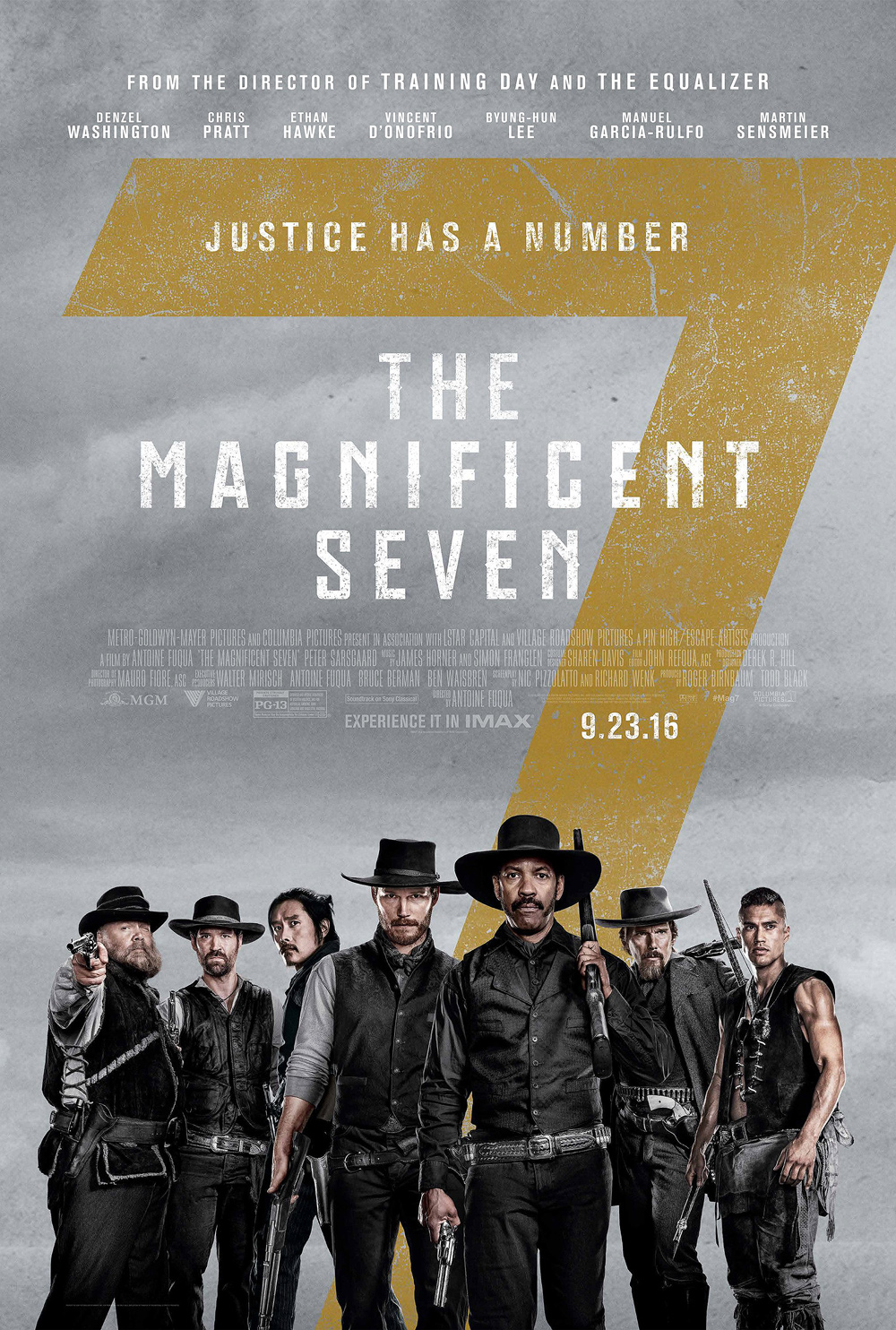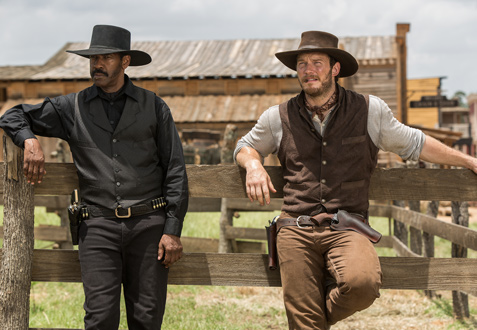Movie Review: “The Magnificent Seven”

Hollywood remakes are hardly a new concept, but while there have been a handful of movies that actually improved upon the original, most tend not to be as good, either because they veer too far from what made them enjoyable or not far enough to make it worthwhile. Antoine Fuqua’s “The Magnificent Seven” is an interesting case in that it’s technically a remake of a remake, based on the 1960 John Sturges film of the same name, which was itself inspired by Akira Kurosawa’s “Seven Samurai.” Although it certainly had the odds stacked against it, the movie succeeds where so many have failed by retaining the spirit of its predecessors while also distinguishing itself just enough to stand on its own. It’s not exactly magnificent, but it’s a slick and entertaining take on a familiar tale that’s bursting with personality.
The year is 1879, and the small town of Rose Creek has been invaded by an evil mining baron named Bartholomew Bogue (Peter Sarsgaard), who presents the townspeople with an ultimatum: accept his paltry offer to buy their land or stay and suffer the consequences when he returns in three weeks. And to prove that he means business, Bogue murders the outspoken husband of Emma Cullen (Hayley Bennett). While her neighbors cower inside their homes, Emma goes searching for help in a nearby town and hires bounty hunter Sam Chisolm (Denzel Washington), who in turn recruits six other men – drunken gambler Josh Farraday (Chris Pratt), former Confederate sharpshooter Goodnight Robicheaux (Ethan Hawke), knives expert Billy Rocks (Byung-hun Lee), fur trapper Jack Horne (Vincent D’Onofrio), Mexican outlaw Vasquez (Manuel Garcia-Rulfo) and Comanche warrior Red Harvest (Martin Sensmeier) – to protect the town and put an end to Bogue’s tyranny. But as they prepare for the inevitable attack, the seven mercenaries soon realize that they’re fighting for more than money.
The movie may feature a slightly different setup and group of characters (at least by name), but “The Magnificent Seven” follows the same basic premise as those that came before it. What separates Fuqua’s film from the Kurosawa and Sturges versions is the refreshingly diverse ensemble, which not only mirrors today’s society but late 1800s America as well, contrary to what other Westerns might suggest. It also reinforces the idea of the Seven as outsiders – from the minority characters, to the wonderfully named Goodnight Robicheaux, who’s still haunted by the horrors of the Civil War – and gives them a reason to bond with one another. Their camaraderie, and the chemistry among the actors themselves, is what keeps you engaged even during the few lulls in the story. Washington (who knows a few things about playing tough and cool) and Pratt (radiating Steve McQueen charisma) are perfectly cast as the film’s leading men, but it’s the supporting players who steal the show, especially Hawke and Lee’s delightful double act.
The less said about Sarsgaard’s one-dimensional villain, the better. He’s the lone weak link in a talented cast of actors, although it’s hard to blame him for the lack of character development. Nic Pizzolatto and Richard Wenk’s script is more interested in hanging out with the titular Seven, mixing bits of humor with quieter character moments that patiently build towards the big showdown. In fact, apart from a well-staged standoff between the mercenaries and Bogue’s men midway through the film, it’s surprisingly light on action, but Fuqua makes up for it with the climactic finale, which delivers everything you could possibly want from a large-scale Wild West shootout. There’s an unmistakably “Fast and Furious”-like flavor to the proceedings, and though it probably won’t win over many fans of the original film as a result, “The Magnificent Seven” is good pulpy fun that, much like the long-running action franchise, is far better than anyone expected.
Related Posts
Posted in: Entertainment, Movie Reviews, Movies
Tags: Chris Pratt, Denzel Washington, Ethan Hawke, Peter Sarsgaard, The Magnificent Seven
















